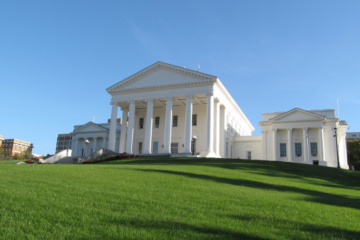A quiet but significant change has been made to how the U.S. government handles marijuana research. Officials say it’s all down to a Trump-era mandate to trim spending, and it’s already shaking up long-held procedures.
The National Institute on Drug Abuse (NIDA) confirmed this week that it’s no longer working with the University of Mississippi to supply cannabis for research, a relationship that dates back more than half a century. The sudden pause isn’t due to lack of demand or scientific developments—it’s about money.
A 50-Year Relationship Abruptly Paused
The University of Mississippi has held the sole federal license to grow research-grade cannabis since 1968. For decades, it’s been the go-to source for scientists studying marijuana’s effects.
But now, that contract has been shelved.
According to NIDA, the decision followed a directive issued under the Trump administration, specifically from the Department of Government Efficiency (DOGE). The agency was created to oversee wasteful government spending, and its cost-cutting priorities are now being felt years later.
One line in an executive order—“Implementing the President’s ‘Department of Government Efficiency’ Cost Efficiency Initiative”—triggered the change.
The Department of Health and Human Services (HHS), which oversees NIDA, launched a sweeping contract review. And somewhere in that audit, the long-running agreement with Ole Miss didn’t make the cut.

What Happens to the Research Now?
Despite the contract termination, NIDA is trying to calm nerves. Officials say there’s no reason to panic—cannabis for government-approved studies will still be available.
That assurance is based on existing supplies and the increasing number of private growers recently authorised by the DEA. Over the past few years, the federal government has started to license other growers, finally breaking up Ole Miss’s monopoly.
Still, some researchers are uneasy.
One researcher at a major West Coast university, who asked to remain unnamed, said the halt “creates more uncertainty in an already over-complicated system.” Others noted that while supply might not dry up overnight, logistical slowdowns could follow.
Why This Matters More Than It Seems
On paper, this might look like routine government belt-tightening. But the optics are awkward.
The research community has long criticised the federal process for cannabis studies as overly restrictive. Limiting supply—even temporarily—could chill progress just as public and political interest in marijuana science heats up.
To make matters more complicated, here’s what the cannabis research supply landscape looked like prior to this decision:
| Supplier | Status Pre-2020 | Status Now | Notes |
|---|---|---|---|
| University of Mississippi | Sole DEA-licensed | Contract halted | Previously the only source since 1968 |
| Private DEA Licensees | Not allowed | Allowed (post-2020) | Still in early stages of distribution |
| International Sources | Prohibited | Still restricted | U.S. law forbids imported cannabis for research |
One insider close to the HHS review called the University of Mississippi contract “a relic of outdated procurement,” arguing that diversifying suppliers is long overdue.
But others see the move as hasty and driven more by optics than real efficiency.
Researchers Caught Between Politics and Procurement
Researchers who rely on federal supply chains are used to red tape. But this latest shift is unusually blunt.
In an email shared with Marijuana Moment, NIDA said that the executive order required a “comprehensive review of all existing contracts to identify opportunities for cost reduction.”
That sounds reasonable—until you realise the marijuana supply contract was worth a relatively modest sum compared to larger federal projects.
Some researchers worry the move was less about savings and more about signalling. One professor speculated: “They wanted to show they were slashing contracts. Cannabis got caught in the crossfire.”
Another researcher put it more bluntly: “We can’t study Schedule I drugs properly, and now they’re making it harder? Great.”
Where Does DOGE Fit In This Puzzle?
The Department of Government Efficiency (DOGE) has operated mostly behind the scenes. It was set up during the Trump administration to root out what it called “redundant or excessive government expenditures.”
It’s not a cabinet-level agency, but DOGE reports directly to OMB and the White House. According to insiders, its influence expanded significantly in late 2020 as Trump pushed for last-minute reforms to the federal budget.
Here’s what we know about DOGE’s recent involvement:
-
DOGE initiated a multi-agency audit of federal contracts in early 2021.
-
Contracts considered non-essential or “low yield” were flagged for review.
-
The University of Mississippi cannabis supply deal was included among those flagged.
-
HHS acted on the DOGE recommendations, issuing the termination notice to NIDA in 2024.
NIDA’s response was muted, likely because the agency had little room to negotiate.
What’s Next for Federal Marijuana Research?
Looking ahead, the future of federal cannabis research depends on how fast new suppliers can scale and whether the DEA continues issuing licences at pace.
But for now, a shadow of uncertainty lingers.
Some analysts believe this might finally force Congress to modernise how marijuana is treated under federal law. Advocates have long argued that marijuana’s Schedule I status—which puts it in the same legal category as heroin—creates unnecessary barriers to research.
And this contract cancellation might just be the wake-up call.
“We’re past due for serious reform,” said Dr. Angela Harris, a pharmacologist at a university in Massachusetts. “If we can’t even guarantee access to research-grade cannabis, how are we supposed to do the science?”
In the meantime, NIDA insists there’s no cause for concern.
That’s cold comfort for researchers already operating under tight restrictions and tight budgets.



